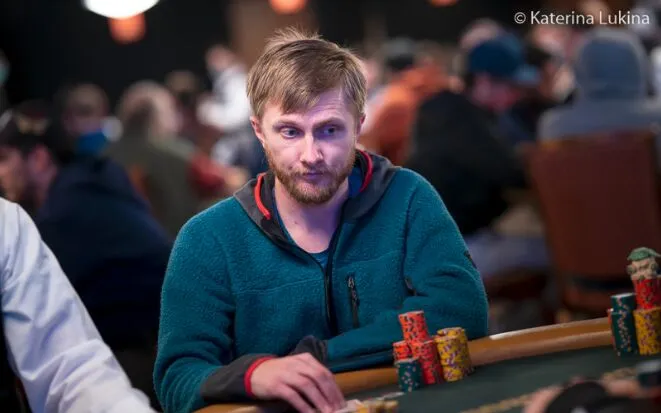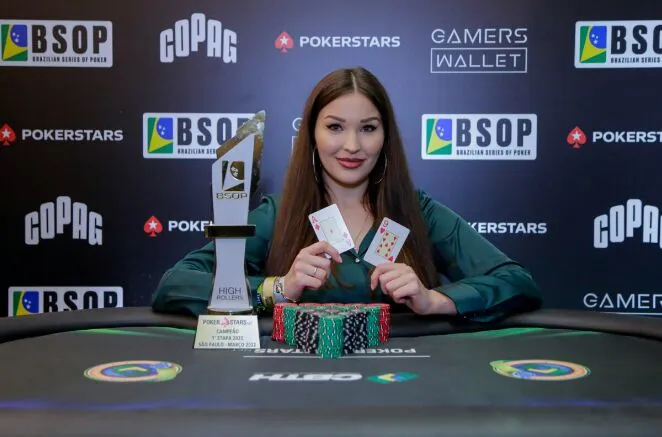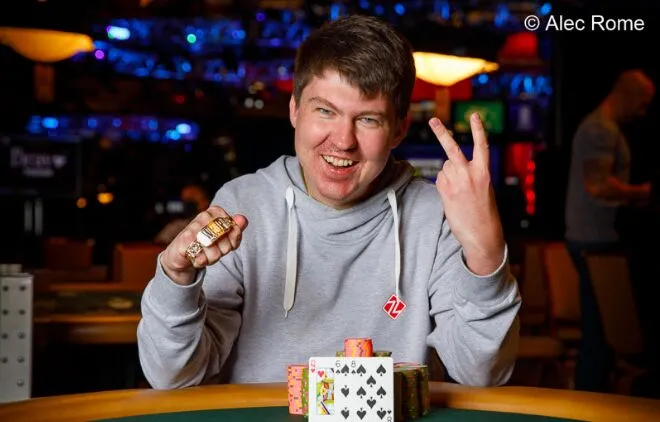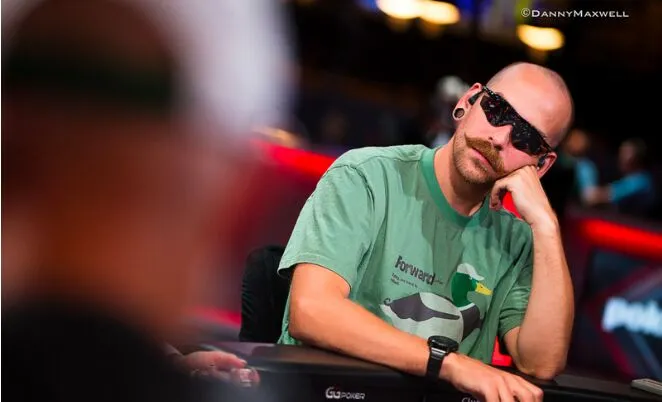We asked live poker regulars whether they should reveal their successful bluffs or unrevealed strong hands.
As expected, opinions are divided. Some players prefer not to give away any information for free, while others willingly show their cards to craft a particular table image or simply out of boredom. The consensus among regulars is that these tactics are primarily effective against novices or particularly impressionable regulars.
Pasha MountainRose // t.me/MountainTeam
Personally, I have a neutral-positive stance on showing cards. Whether I'm up against a beginner or seasoned regulars, I occasionally reveal my hand, especially if it's common practice at the table. However, this is a rare occurrence. Against a regular, it's usually a futile gesture unless they're prone to tilting. In that case, it can be a strategic move to rattle them and disrupt the table dynamics.
I steer clear of cash games; low stakes don't excite me, and high stakes could deplete my bankroll before I've mastered the game.

Online, I only show my cards to specific opponents—if we frequently clash, know each other personally, or chat outside the game.
Showing the nuts is generally pointless unless you're facing outspoken amateurs and aim to foster a particular atmosphere at the table. In such cases, revealing a strong hand occasionally can be beneficial, especially if others are doing the same. Displaying bluffs can be advantageous for your image, particularly against amateurs who might attempt to counter the bluff, often to their detriment.
A memorable incident occurred at the WSOP during a $10k 6-max event. A loose American regular opened from the hijack (HJ), followed by a call from a weak, inexperienced amateur in the cutoff (CO). I decided to squeeze with suited from the button (BTN). The regular folded, and after some contemplation, the amateur did the same.
The regular, having previously shown his cards for table camaraderie, asked to see one of mine. I obliged, letting him pick a card. He flipped over the and was visibly disappointed, as was the amateur, who looked almost personally offended by my play. Ironically, the regular, who had been chatty up until that point, became sullen and withdrew from the conversation.

Later, the same players faced off again. This time, I had . The first opponent folded, but the second called my 3-bet with . The flop came offsuit, and we got into a heavy betting war—75 big blinds deep. After a continuation bet, he raised, I 3-bet, he went all-in, and I called. The turn brought a , and the river paired the board with another . Initially, I thought I'd lost, not noticing the jack and assuming he had two queens. After his defeat, he was left with a short stack and remarked to the table that since I had shown a previously, I might as well be playing recklessly with any two cards. His decision to go all-in with top pair in a 3-bet pot was influenced by our earlier interaction. Without that history, he might have played the hand more conservatively.
Interestingly, he mentioned that he writes for The New York Times and has published bestsellers. Perhaps some of you are familiar with his work.

In poker, being perceived as a frequent bluffer can be advantageous (+EV). If opponents misjudge your play, you can adjust by reducing costly bluffs and focusing on value betting. They'll likely continue to call, trying to catch your bluffs. Selective memory is a powerful factor—players often recall bluffs more than the times you backed down. They may prefer to attempt a 'hero call' rather than make a disciplined fold and remain in the dark about your actual hand.
However, this strategy can backfire, especially against experienced regulars. It's crucial to anticipate the conclusions your opponents might draw from your actions. This is where psychological warfare comes into play, and I usually leave such mind games to the likes of Phil Hellmuth and Daniel Negreanu, as this is their forte.
I commended Yulia Lisichkina for the bluff she executed, not because she displayed bravery or "punished" her opponent, but because she recognized its value for her image and leveraged the situation astutely. As a result, Yulia ended up in a heads-up match in a major tournament at The Venetian.
- Increased first deposit bonus
- Increased rakeback and reloads
- Help with deposits and cashouts
- Access to private freerolls
- Round-the-clock support
Artem Timsk // Vlogs from Canadian offline
Maintaining silence and not revealing your cards during a poker game is akin to the unwritten rule of not engaging in conversation during a hand—it's never a mistake to keep your strategy close to your chest. However, if you choose to show your hand, it might set a precedent that could later work against you. I learned this lesson firsthand during one of my initial ventures into live poker.
At the time, I was playing at stakes that were uncomfortably high for my bankroll. There came a moment when I decided to bluff my entire stack for the first time that evening. My opponent folded, and amid the quiet tension, one player speculated aloud that I must have had an unbeatable hand. Tempted by the opportunity to alter my image from a conservative player to a more daring one, I revealed my bluff. I thought this would slightly enhance my reputation at the table. :)
However, this decision came back to bite me. Later in the game, the very same opponent called my bet with just a second pair, risking his entire stack in the process. It was clear that his bold move was heavily influenced by the bluff I had previously shown.
Since then, I've adopted a policy of not showing my cards, aiming to eliminate any unnecessary variables from my opponents' decision-making processes. While I might make an exception in a private game to keep the atmosphere light and enjoyable, I see no strategic advantage in revealing my hand in a casino setting.
Dasha Darya_Kurt // twitch.tv/darya_kurt1
My stance on revealing cards is decidedly negative; I choose to keep my strategies and gameplay close to the vest, resisting the urge to showcase a bluff. Besides, bluffing isn't typically a part of my playbook. :)
The decision to show or conceal one's cards should be strategically aligned with the image you've cultivated at the table. For instance, if you're perceived as a tight player who predominantly plays strong hands, revealing a bluff just once can alter your table image significantly. This slight deviation from your usual pattern can make opponents more likely to pay you off in the future, believing you might be bluffing again.

This tactic tends to be more effective in live games, where you're seated at the same table for several hours, and crafting an image is crucial. In contrast, the impact of showing cards in online poker is often diluted, as players may not notice or remember these moments amidst the rapid pace of digital play. Personally, when I observe a player revealing a bluff, it plants the seed of expectation that they might adopt a bluff-heavy strategy moving forward.
Victor Enlight
I think that there is no EV in showing cards, but purely for fun you can do this sometimes.
Denis adrenaline710
Revealing your bluffs or strong hands, often referred to as "the nuts," is a strategy that I believe holds merit primarily when facing amateur players. These opponents might misinterpret the significance of such information, potentially to your advantage. Against seasoned professionals, however, this tactic seldom proves beneficial. An exception might be made in instances where revealing a bluff could tilt your opponent, a psychological edge I occasionally exploit, though I steadfastly refrain from showing my strongest hands.

Admittedly, there's a certain allure to showcasing a well-executed bluff, not for strategic gain but for the sheer ego boost it provides. It's akin to silently boasting, "Look at this brilliant bluff I just orchestrated." I've succumbed to this temptation a few times. Naturally, this approach tends to be more effective in live settings, particularly in tournament play involving amateur participants, rather than in cash games.
Overall, my philosophy leans towards keeping my cards close to my chest, opting to reveal them only on the rarest of occasions. The element of mystery in poker is a powerful tool, and divulging too much can often do more harm than good.
Anatoly Dykalis // t.me/tolyaveronika
In American fields, where there are a lot of amateurs and the field is generally large, and not many people know me, I rarely bluff big and try to show these bluffs in order to dilute my tight image. There it works most often at the first level of thinking, there is no need to be clever.
But I almost never show it in small fields like Sochi – too often I have to play with the same people, and I don’t want to give unnecessary information about my game.





















